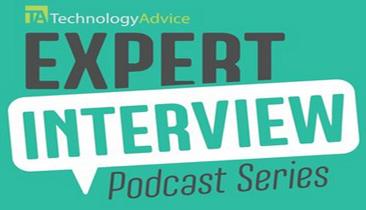Ash Aujla, the Director of Marketing at EasyProjects, was a recent guest on the TechnologyAdvice Expert Interview Series to share her insight on the project management industry. The series, which is hosted by TechnologyAdvice′s Clark Buckner, explores a variety of business and technology landscapes through conversations with industry leaders.
Aujla joined Buckner to discuss how to invigorate enterprise-level companies with agile project management strategies, remote working trends, and the use of agile project management methodology in more than just software teams.
TechnologyAdvice: What trends have you been seeing over the last three to six months from your vantage point in the project management software industry?
Ash Aujla: One of the biggest trends that we′ve seen is the adoption of the agile project management methodology, not just in IT, but also in other industries like marketing and operations.
With failure rates for projects being so high in the past, we can see why agile would be an attractive method for many project managers. Constant communication with stakeholders throughout a project really helps to mitigate a lot of the risk and keep everyone accountable.
The second trend, which is huge, is the move towards remote teams, which is something we see that′s going to continue and keep going.
TA: When you think of an enterprise-level company– the gigantic, slow-moving companies– you think of them as losing their innovative edge or sometimes getting to a point where they are so big it′s almost detrimental to their progress. How can adopting agile project management strategies help these enterprise-level companies go back to the heart of being innovative and entrepreneurial?
Ash Aujla: Agile is definitely a methodology that′s been taken up by a lot of startups. The reason why it′s been so highly adopted is because it does allow for teams either big or small to pivot and be able to keep a backlog of things that need to be completed. But the main thing that agile helps to do, is to have these checkpoints where people are continuously communicating.
So when you′re looking at bigger companies, and how they are used to doing things in the past, oftentimes you would have this project, then a discussion, then talk about the plan and say, “Okay go, we will see you at the end.” A lot of times what would happen is you know the end result wouldn′t be what was discussed or deliver what the stakeholders originally wanted.
Listen to the entire show above in order to hear our full conversation, or download the conversation to listen later.
This podcast was created and published by TechnologyAdvice. Interview conducted by Clark Buckner.
Follow us


